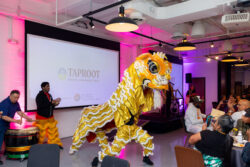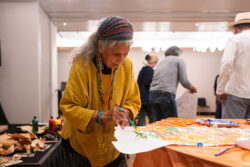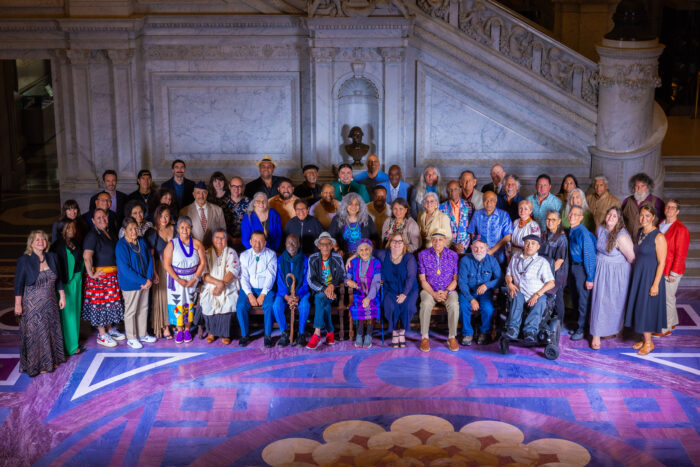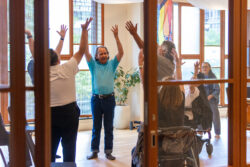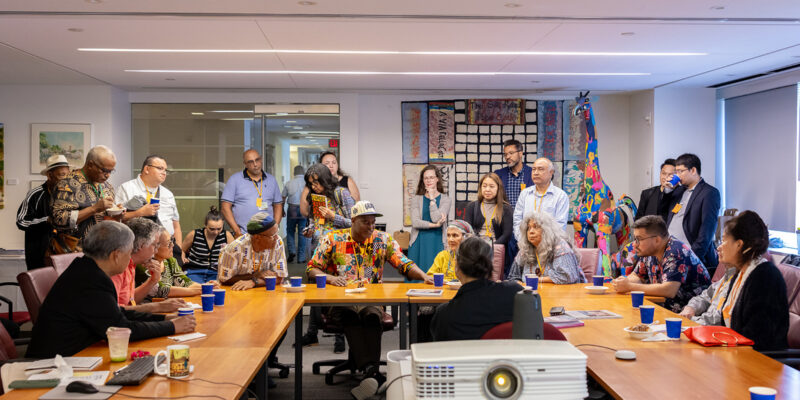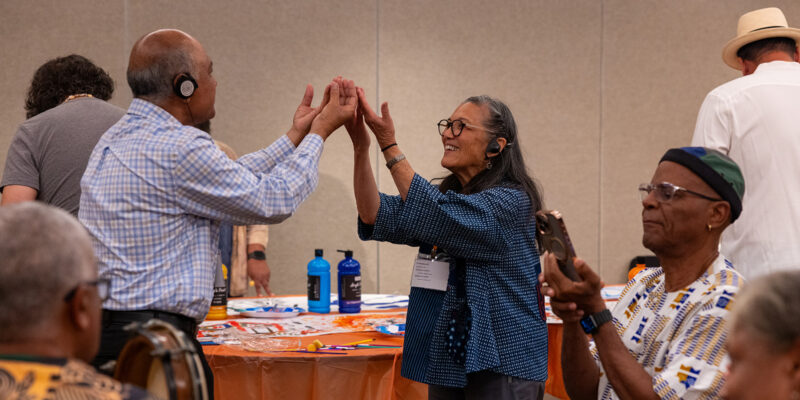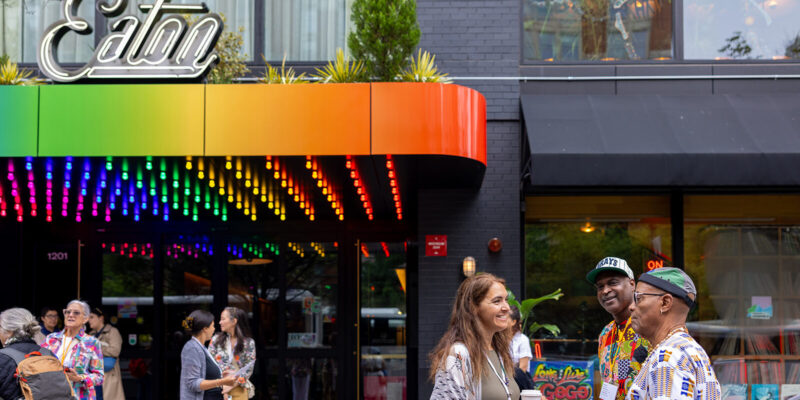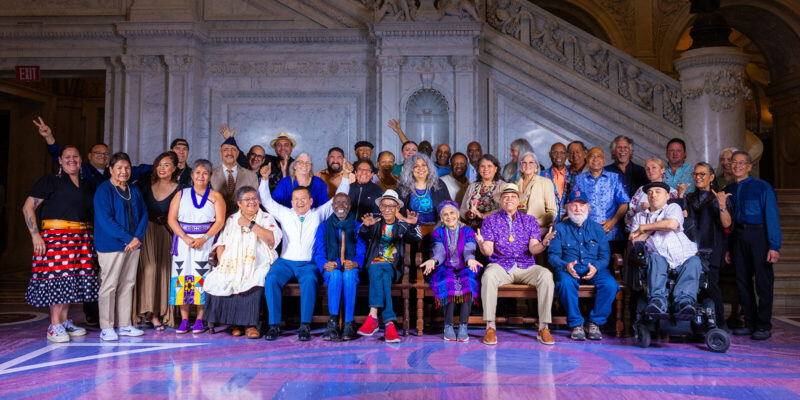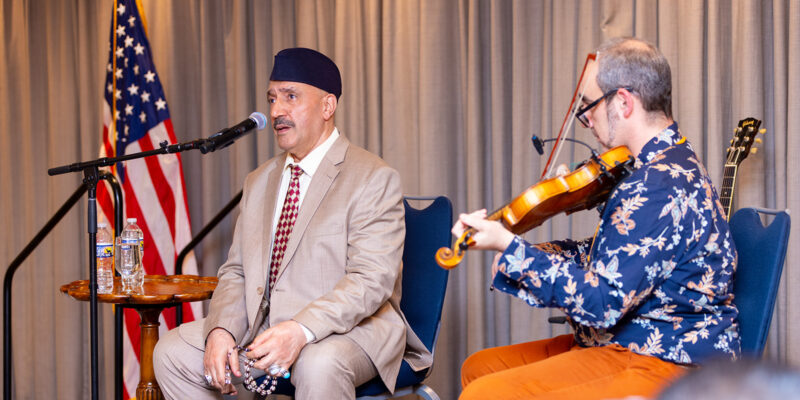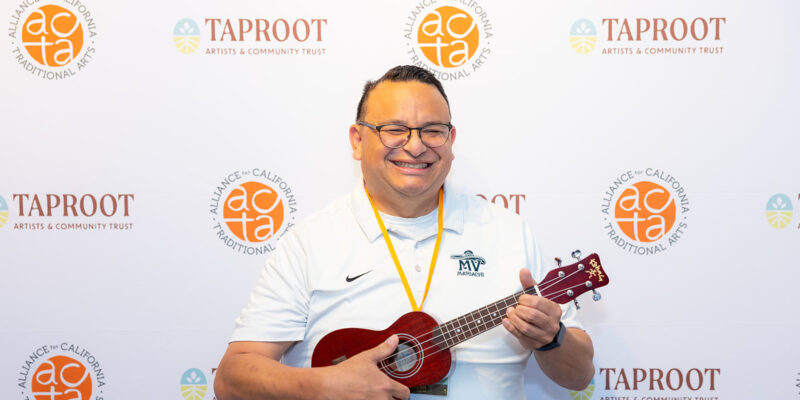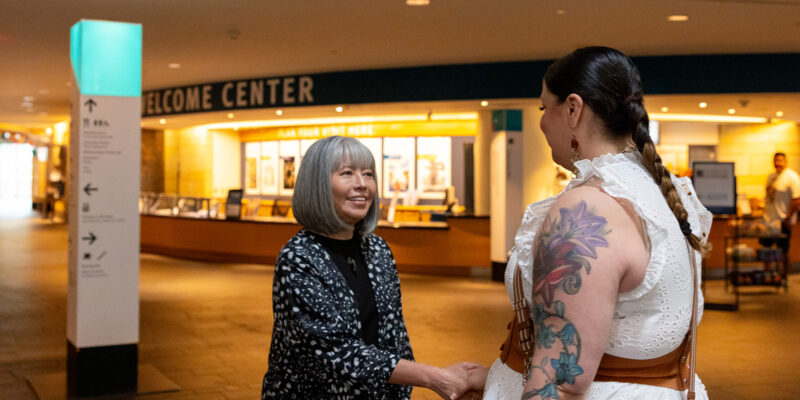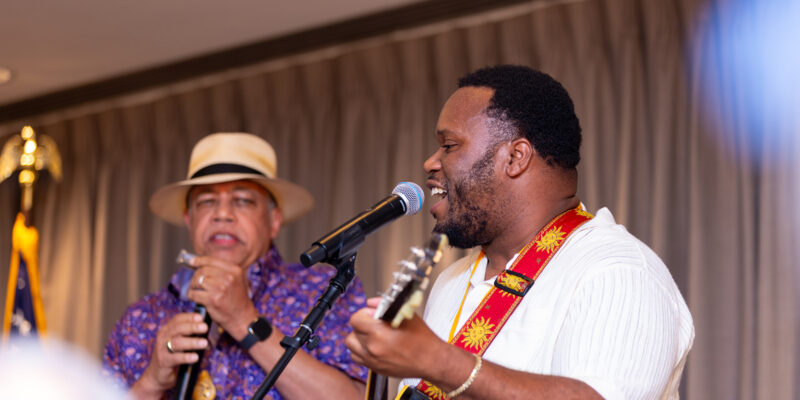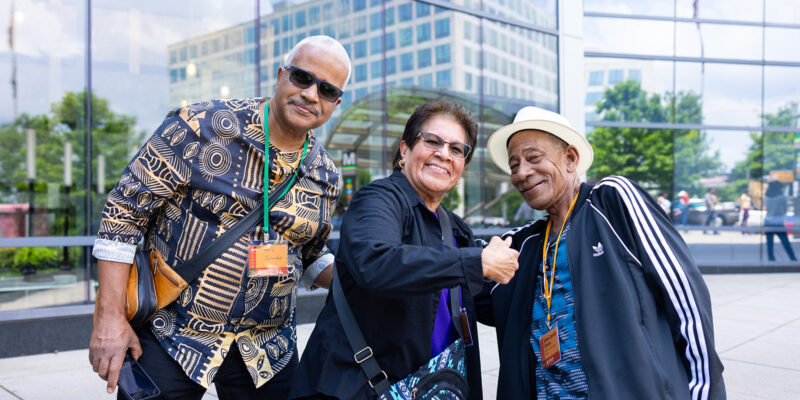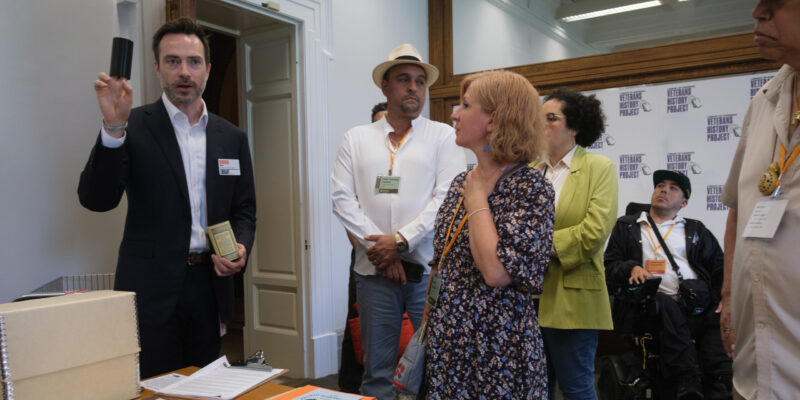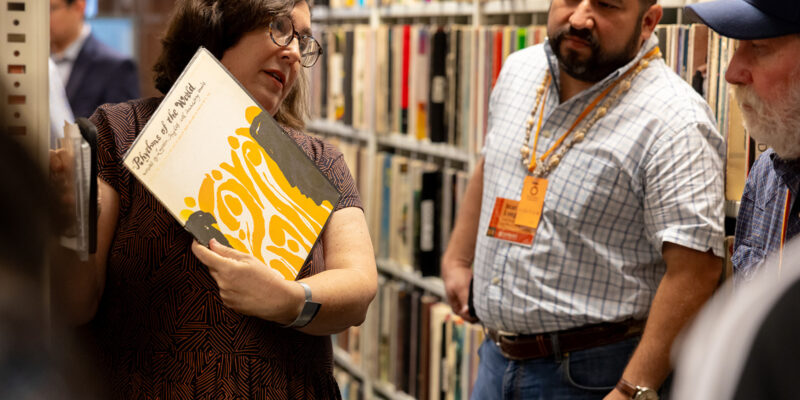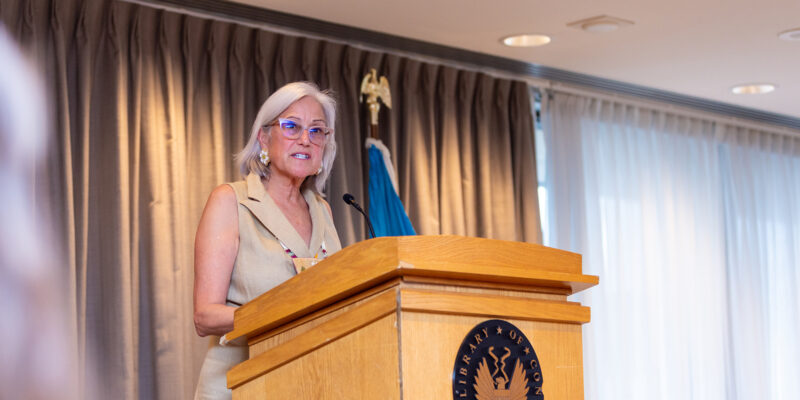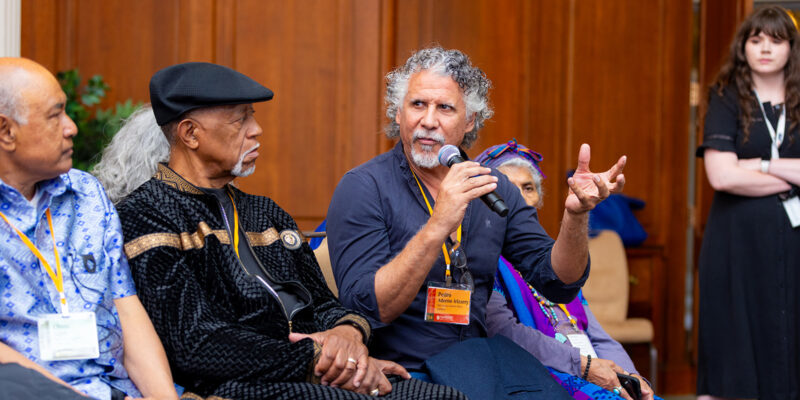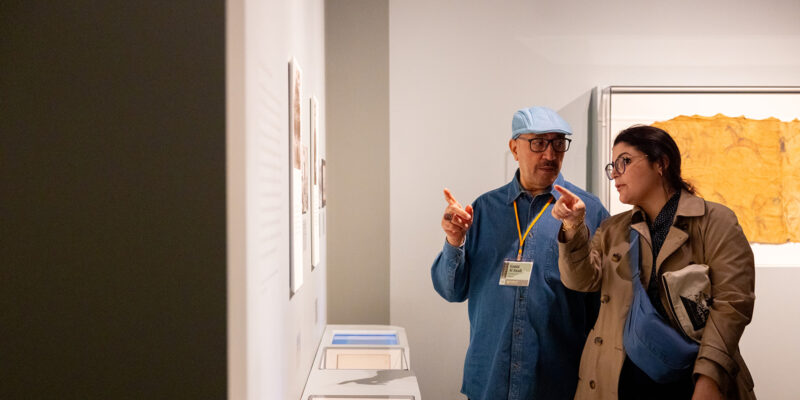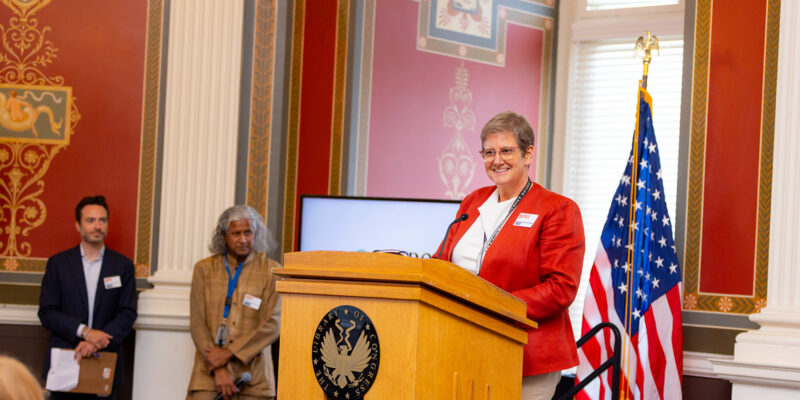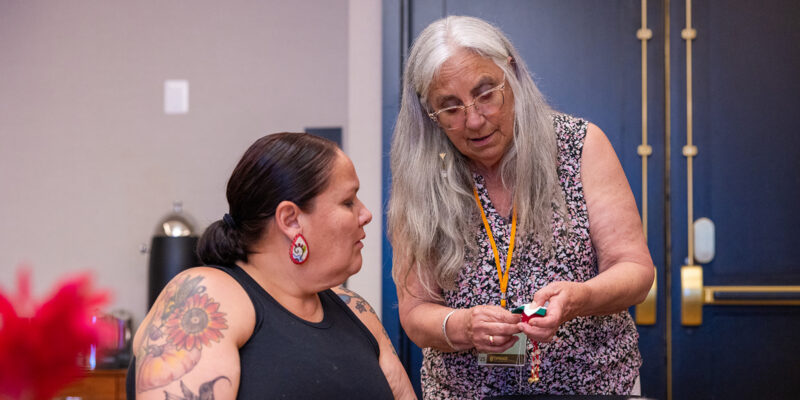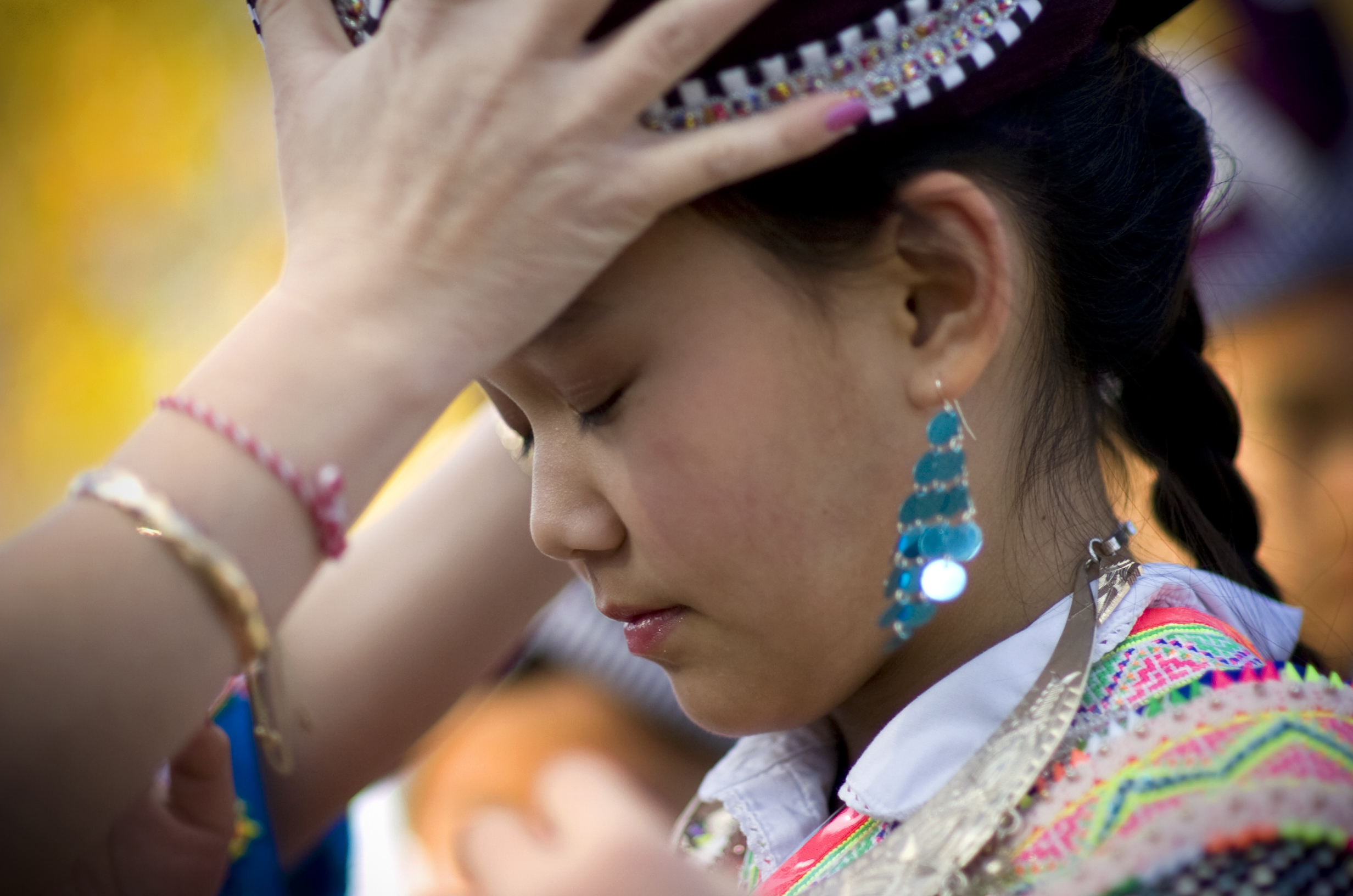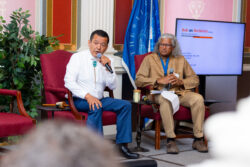
Fellows visited the Library of Congress for an “Ask an Archivist” session with staff from the American Folklife Center (AFC), gaining insight into how traditional knowledge is archived and shared at the national level. During this session, 2024 Maine-based Fellow Dr. Dwayne Tomah spoke about his work with the AFC on “rematriating” recordings of the Passamaquoddy language to his community. ACTA and the AFC also co-hosted a formal reception, honoring the Fellows’ contributions to the country’s cultural heritage, and hearing from representatives from Congressional offices, the Smithsonian, the Library of Congress and the Taproot Fellows.
Additional visits to the Smithsonian Center for Folklife and Cultural Heritage and the National Museum of the American Indian invited reflection on institutional narratives, representation, and the role of cultural heritage in public memory. Evening gatherings—including a final open mic with art sharings and a community dinner—offered moments of celebration, storytelling, and connection, reinforcing a shared commitment to cultural continuity across disciplines, generations, and geographies.
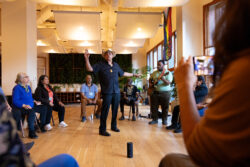
Bringing together artists from such geographically and culturally diverse communities—including Puerto Rico, Guam, the U.S. Virgin Islands, Alaska, and rural regions of the continental U.S.—was both logistically ambitious and strategically vital. Many of these practitioners work in historically underfunded and under-recognized cultural traditions. The convening served not only as a networking opportunity, but as a visible affirmation of the value of traditional arts to the national narrative.
For ACTA, the convening underscores our commitment to expanding access, visibility, and resources for traditional artists across the country. It also reflects a growing recognition—within philanthropy and the public sector—of the central role culture plays in building community health, cohesion, and resilience.
The Taproot Fellowship continues to serve as a model for what it looks like to support culture bearers holistically: not simply through project funding, but through long-term investment in people, practices, and the systems of care that surround them. We thank our funders, the Mellon Foundation, and the Maxwell-Hanrahan Foundation, for making this gathering possible.

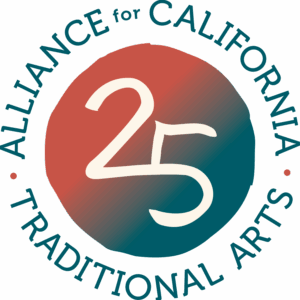 Alliance for California Traditions Arts
Alliance for California Traditions Arts
